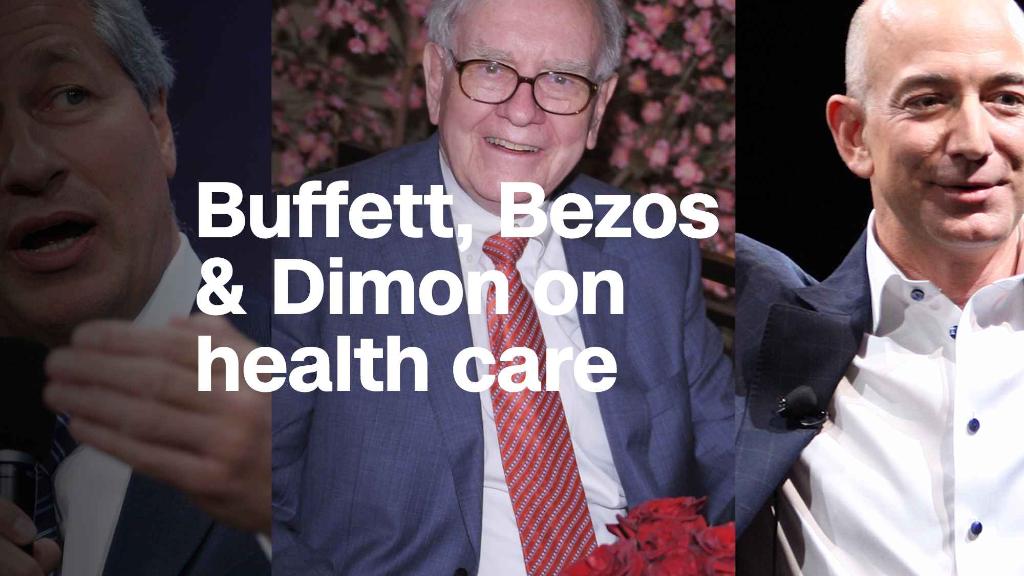
After a devastating horseback riding accident in January 2017 landed him in the hospital for about 30 days, requiring trauma care and hospital-based therapy, Jeff Woodard considered himself lucky.
Treatment cost hundreds of thousands of dollars. But Woodard's employer-sponsored health insurance limited his out-of-pocket maximum payment to $5,000. He reached that "within like a day," he recalled.
His retired parents relocated from Massachusetts to help Woodard, now 27, who lives just outside of Denver, through his recovery. With their support, and regular outpatient therapy, he returned to working full time in two months.
But he didn't expect more payments to haunt him for almost a year, threatening to weaken his credit rating for even longer.
Related: Trump administration aims to lower prescription drug prices for seniors
While medical bills are a leading source of personal bankruptcy in the United States, a far more common problem is their damage to people's credit. Almost 40% of adults younger than 65 reported a lower credit score because of medical debt, according to the most recent Commonwealth Fund analysis, based on 2016 data.
That means greater difficulty with transactions such as financing mortgages, taking out student loans or purchasing cars.
Woodard's parents had taken care to ensure that all the care their son received was within his insurance network. It turned out that the trauma doctors at the in-network hospital were not. They worked for Aspen Medical Management, a Colorado Springs, Colorado, physician-staffing firm that contracts out doctors to hospitals.

That generated about $3,000 worth of out-of-network surprise bills, sent directly to Woodard.
Woodard appealed with both his insurer and Aspen. His parents hectored Colorado lawmakers and complained to the hospital and various state agencies. But as notices from Aspen and then collections agencies piled up, with threats to report delinquent bills to credit bureaus, his worry grew.
"I was planning on refinancing my mortgage," he recalled, which he said would have saved him $15,000. "But if I got a bad hit to my credit score, it wouldn't save me any money. I was paranoid about that."
Woodard's persistence succeeded. His debt was settled just days before it would hit his credit report.
An Aspen spokeswoman declined to comment.
An unpayable bill, and years' long damage
Medical debt often results from unplanned illnesses and accidents, or because consumers do not fully understand their health plan's details. Good coverage won't necessarily shield someone from considerable costs.
Left unpaid, these bills ultimately go to collections agencies.
Eventually, that dings the patient's credit, staying for up to seven years, depending on state laws.
It's a multibillion-dollar industry. In 2016, the most recent year for which there are figures, agencies collected just under 10% of the $792 billion consumers owed in overall debt, according to an industry report.
About 46.8% of collected debts that year were health care related, according to Consumer Financial Protection Bureau data.
Outstanding bills can have serious ramifications for consumers, explained Chi Chi Wu, a staff attorney at the Boston-based National Consumer Law Center, who specializes in medical debt and credit reporting. Even an unmet deductible or copayment can be catastrophic.
Rodney Anderson, a mortgage broker in Plano, Texas, sees this regularly.
Starting in 2008, he noticed that almost half of his clients had weaker credit — therefore securing less favorable loans — because of medical debt. Even now, it affects "five to 10" of his clients each day.
The most recent federal analysis, a 2014 CFPB report, found almost 20% of credit reports had at least one medical collection listed, amounting to $580 on average.
Protections that took effect last fall could provide relief.
Following a settlement reached by multiple state attorneys general and credit reporting agencies, collections agencies must wait 180 days before reporting unpaid medical bills to the credit bureaus, to allow consumers time to sort out insurance disputes.
A narrow provision of a banking regulation bill stalled in Congress would extend this waiting period to a full year for military veterans.
Apart from credit reporting modifications, some states, including Woodard's Colorado, have laws to limit surprise billing, which many experts say triggers these financial issues. But such measures are limited. Many prohibit balance billing — charging patients the difference between a list price and what insurance paid — in only certain care settings, or shield patients from the payment responsibility, without necessarily stopping providers from sending a bill.
Related: Medicare Advantage plans will soon cover things like groceries, air conditioners
This patchwork approach reflects a larger truth: Efforts to legislate meaningful change have foundered, often in the face of strong opposition from the credit reporting industry, which, Open Secrets data shows, consistently lobbied Congress about these issues.
Unpaid medical debt is "important ... for lenders and creditors," said Eric Ellman, senior vice president for public policy and legal affairs at the Consumer Data Industry Association, a major trade group.
Some observers argue that changes in insurance design have raised the stakes.
Private insurance — marketplace plans and employer-sponsored ones — now holds consumers responsible for more health care costs, noted Sara Collins, the Commonwealth Fund's vice president for health care coverage and access. Middle-class people especially, she added, are more vulnerable to unpayable medical bills, and consequently medical debt.
Meanwhile, Woodard appears to have won this round.
But his case may not be over yet. This March, he received another bill for an ambulance he took to the hospital.
Kaiser Health News (KHN) is a nonprofit news service covering health issues. It is an editorially independent program of the Kaiser Family Foundation that is not affiliated with Kaiser Permanente.
